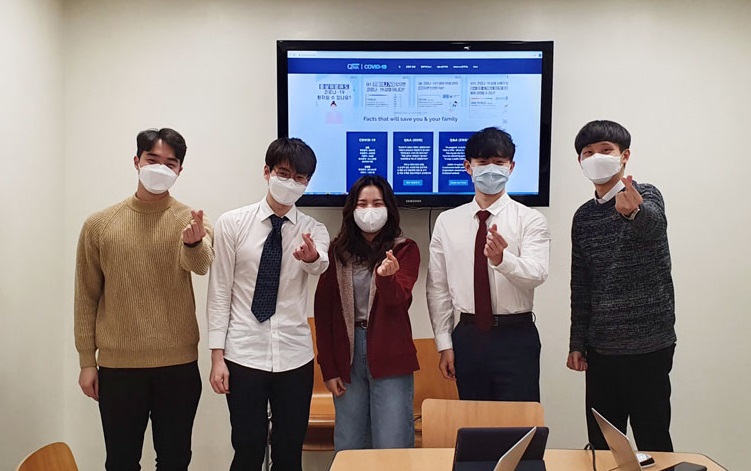- Yonsei Students Team Up as COVID-19 Mythbusters April 02, 2020
-
CoronaQNA platform combats "incorrect" panic with "correct" easy-to-understand facts
“A hot bath can prevent COVID-19.”
“You can reuse a mask if it is microwaved.”
“Can I get infected by sharing food?”
“Should I have my windows closed to prevent infection?”
“What constitutes ‘close contact’ with a COVID-19 infectee?”
In the wake of the coronavirus (COVID-19) pandemic, misinformation, confused assumptions, and fake news are currently spreading rapidly online, causing fear and anxiety among the general public.
To address this global issue, a group of Yonsei students has teamed up to launch a COVID-19 myth-busting platform called CoronaQNA, aiming to combat widespread misconceptions of the virus and provide accurate, easy-to-understand information to increase public awareness.
“Although we’re young students, we were convinced that there would be something that we could contribute,” said Hyun Ho Shin (entering class of ‘15, Medicine), a member of CoronaQNA. “We realized that the main problem was that people with no background knowledge in medicine or biology misunderstood the concise and hard-to-understand opinions of experts and government briefings.”
Majoring in various departments such as medicine, nursing and biotechnology, CoronaQNA members all have one thing in common - a strong passion for contributing to impacting society through innovative problem-solving.
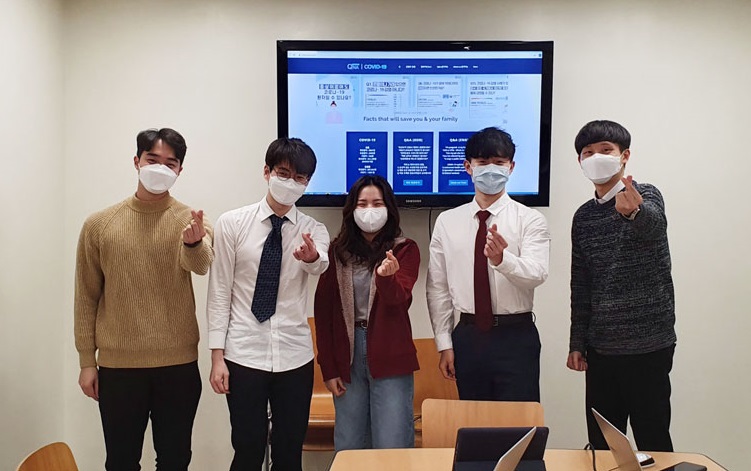 CoronaQNA team members*
CoronaQNA team members*CoronaQNA consists of members from two Yonsei student “social innovator” teams: ARMS, a health literacy advocate club that provides reliable information to help society make appropriate health decisions, and SaChoom, a social venture group that recently developed a non-recyclable syringe needle to prevent the spread of diseases through reused, contaminated syringes. Both affiliated with the Institute for Higher Education Innovation** at Yonsei University, the two teams have combined their strengths to identify and address the social issue of rising fear based on the spread of misinformation on COVID-19.
The students may be young, but their take on CoronaQNA is nothing but professional. With a strict policy that the platform only provides accurate data from verified sources, the team selects reliable data from public health authorities (e.g., WHO, CDC, NHS) or the opinions of experts specializing in related medical fields that are backed with authorized evidence. They summarize the information in layman’s terms, using infographics and designing card news format content, and share them on the CoronaQNA website and social media channels to decrease the information gap between experts and the general public.
“We do not directly answer the public’s questions, but we find the relevant references from authorized sources to help them understand the information,” explained Steven Chun (entering class of ‘14, Biotechnology & Industrial Engineering), another CoronaQNA member.
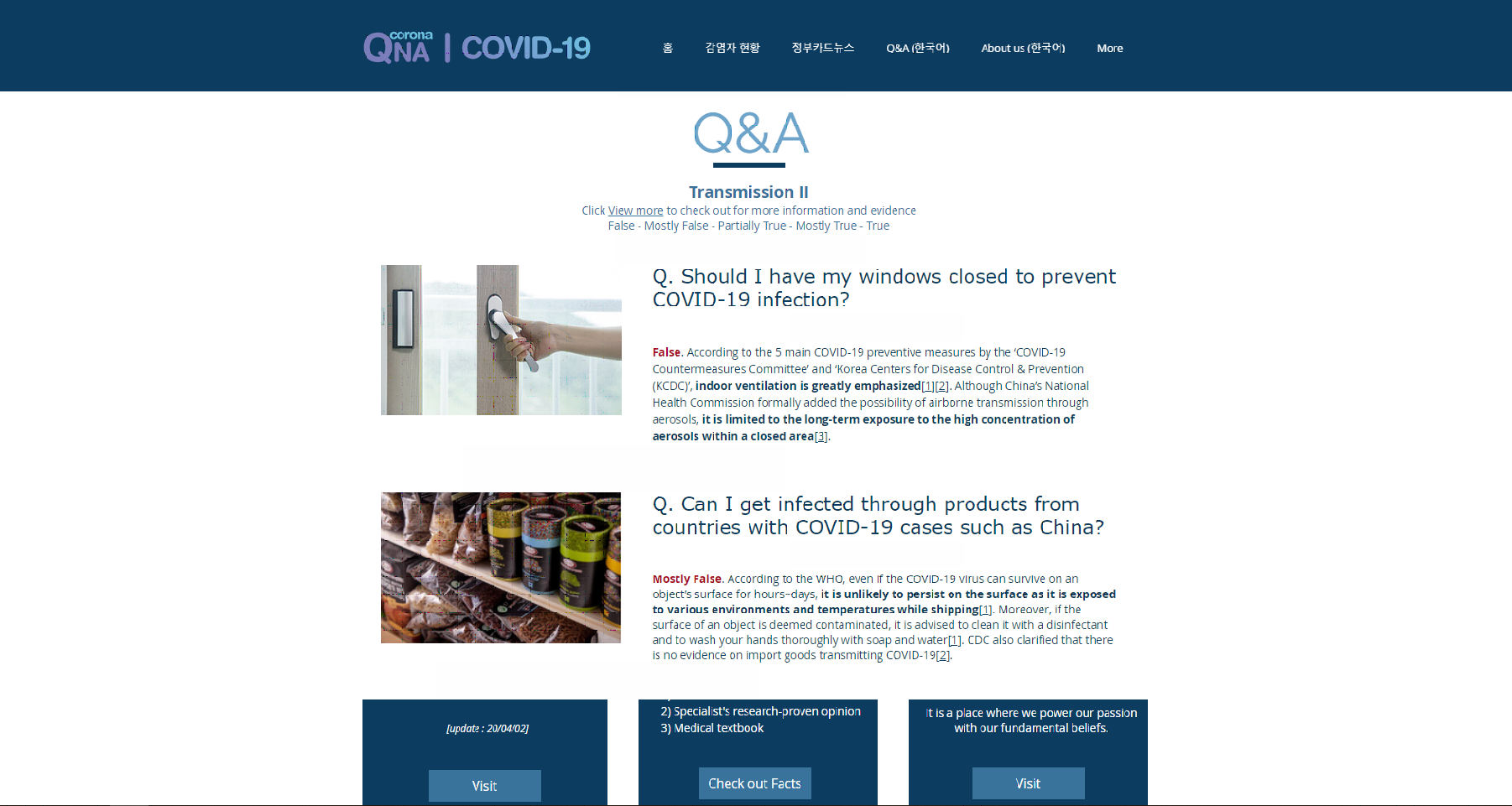 CoronaQNA website (Q&A section)
CoronaQNA website (Q&A section)The team also received professional support from academic members of the Yonsei community to improve the quality of information on the website. A Yonsei professor of the Department of Respiratory Medicine provided helpful advice and materials distributed from the Korean Respiratory Medicine Society, including official medical recommendations for COVID-19 and documentation about specific symptoms of the patients in Korea. He also invited the team to a private group chat, which shares information about COVID-19 among the department faculty members.
“One of the great things about Yonsei is that it encourages and actively supports students to contribute to solving social problems voluntarily,” commented a CoronaQNA member.
CoronaQNA also focuses on ensuring that the information is digitally inclusive and easily accessible to all members of society. Platform content is translated in several languages, including Chinese, Spanish, English, and Japanese, to help educate the international community with valuable information based on the advanced medical grounds and clinical data in South Korea, one of the first virus-hit countries. The website also follows the Web Accessibility Initiative, providing alt text for all image-based content and hidden descriptive text for buttons and links. By using the screen reader program to deliver more content accurately and efficiently, the website decreases the information gap for people with limited information accessibility, such as the visually impaired.
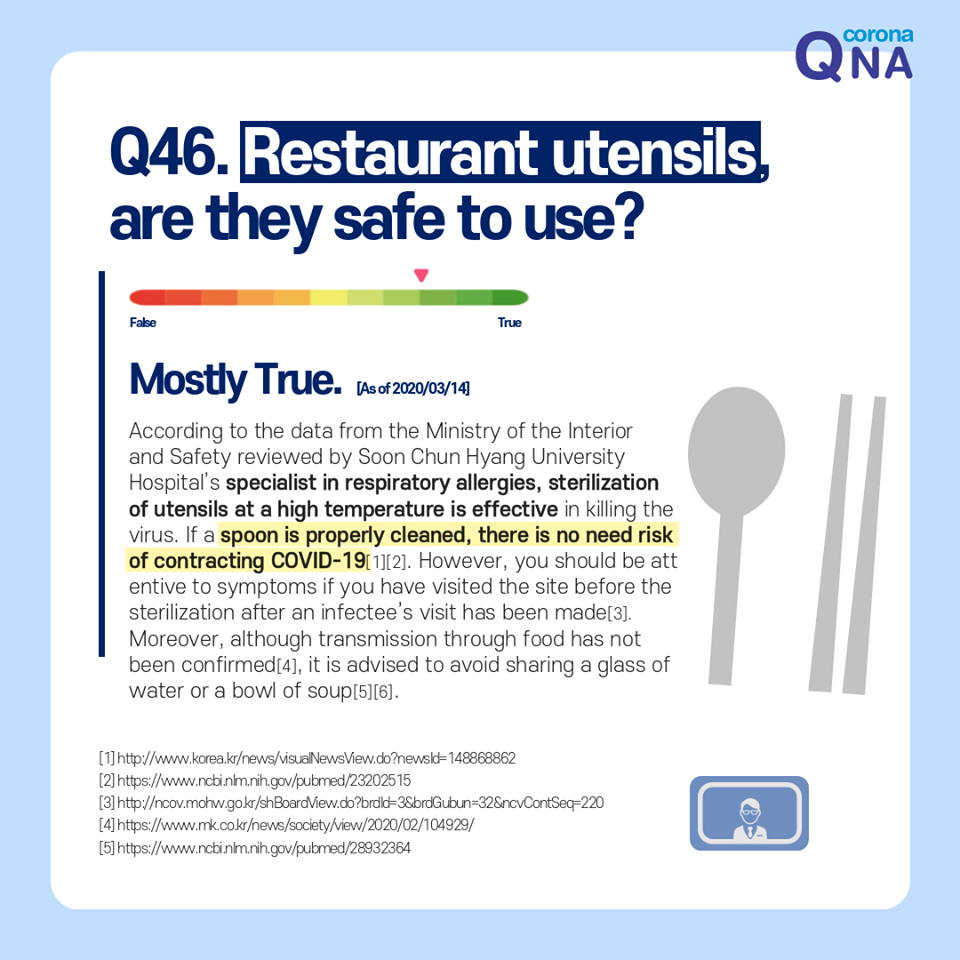
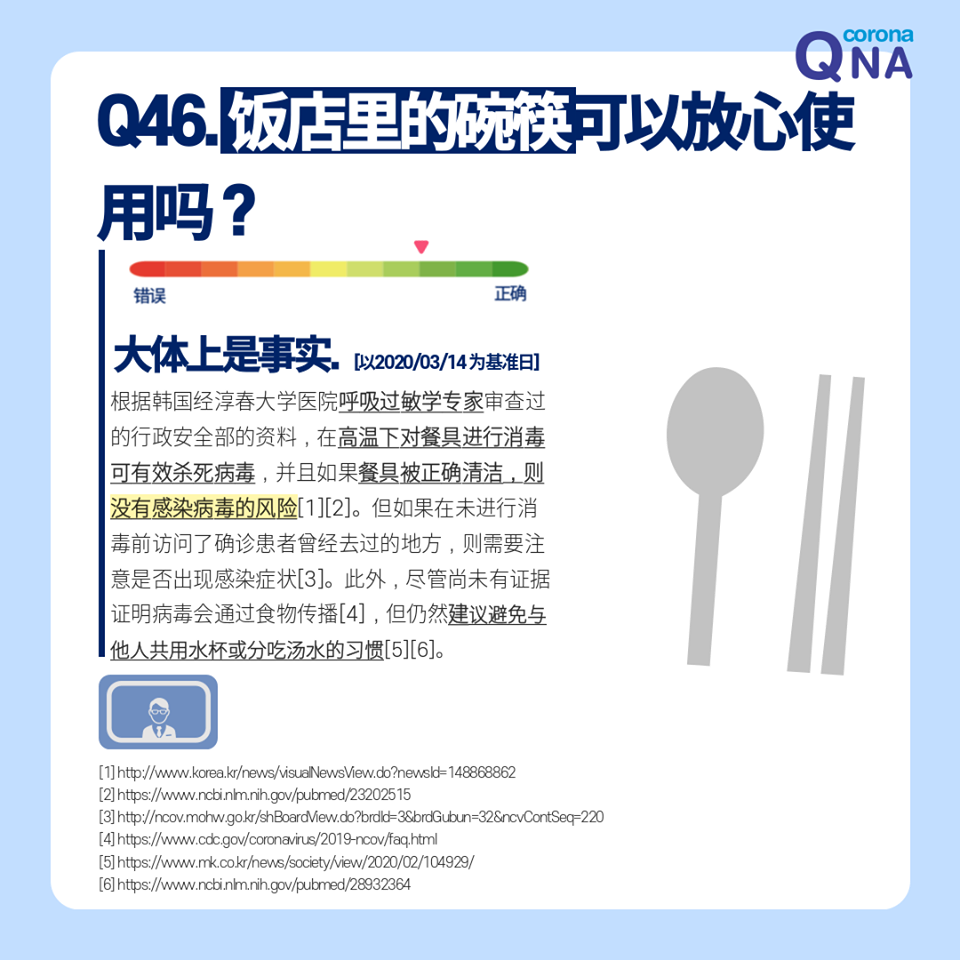
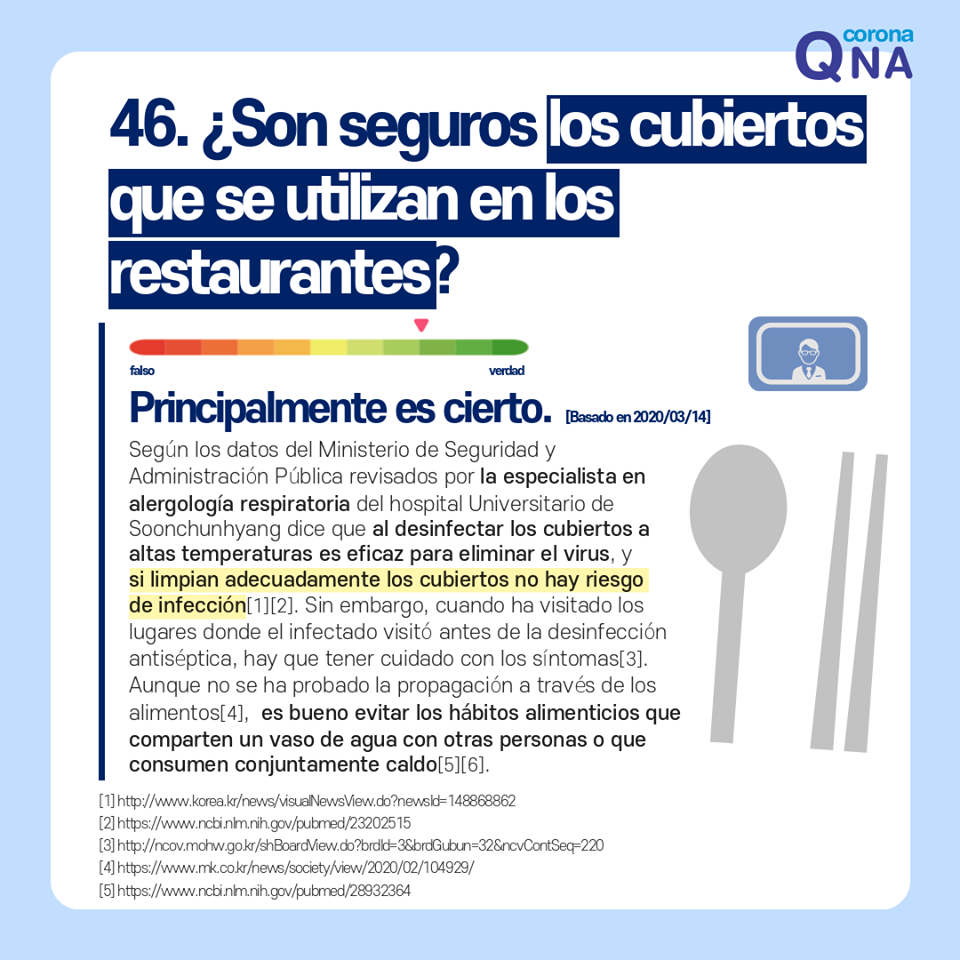
Content in different languages
CoronaQNA takes on an integrated approach, working in ever-changing modules of different members with different majors to draw out innovative ideas from various academic perspectives. Members follow a “not confirmed until everyone confirms” rule, which motivates them to do their best.
Good ideas and teamwork are only the tip of the iceberg; members willingly devote long hours of painstaking work for CoronaQNA’s fundamental beliefs: ‘If we can prevent the infection of one more person,” and “If we can save one more life.”
So, what keeps them going? A memorable moment shared by a CoronaQNA member explains it all.
In late February, people in Korea were panicking about the major breakout in Daegu. There were even rumors about locking down the city. The first weekend after we launched our website, just two days after our launch date, someone sent us an email in Korean.
“I’m so worried about asymptomatic patients. There are rumors that even though you look healthy on the outside, you have this serious pneumonia on the inside. Does the word asymptomatic literally mean ‘no symptoms,’ or does it refer to the incubation period? Am I already infected? I tried to search online but couldn’t find anything.”
So we explained experts’ opinions and CDC’s briefing about this issue in easy-to-understand terms, and it took four emails for that person to finally and thoroughly understand the medical knowledge regarding “asymptomatic patients.”
In the end, that person replied that “there are so many rumors and information about coronavirus, and it’s almost seemingly impossible for me to filter out the truth, which increased my fear... Thank you so much for your answer, for helping me to understand this. I’ll introduce this website to my friends.”
After starting to distribute information translated in other languages on Facebook and our website, there were doctors in the U.S. who were sharing our posts, and there were even people who tagged us, commenting, “These people in Korea sharing information about COVID-19… God bless them!”
This comment and all the other thank you messages from around the world, made us feel gratified and rewarded. We were encouraged to believe in ourselves - that we are really helping people who need help, regardless of their nationality.
Although many people are suffering from COVID-19 at this moment, we think the world can overcome the global crisis if we band together.
+ + + + + + + + + + + + + + + + + + + + + + + + + + + + + + + + + + + + + + + + + + + + + + +
*CoronaQNA team members
Steven (Geon Hyeok) Chun (entering class of ‘14, Biotechnology & Industrial Engineering)
Hyun Ho Shin (entering class of ‘15, Medicine)
Seokhyeon Ryu, (entering class of ‘16, Medicine)
Hun Kim (entering class of ‘17, Medicine)
Chulwoo Ahn (entering class of ‘19, Medicine)
Dong Hyun Seo (entering class of ‘17, Medicine)
Jiwon Kim (entering class of ’18, Nursing)
Su Min Kim (entering class of ’16, Sustainable Development & Cooperation)
Kyung Bae Lee (entering class of ’17, Medicine)
Woo Jin Kim (entering class of ’16, Food & Nutrition)
**About the Institute for Higher Education Innovation
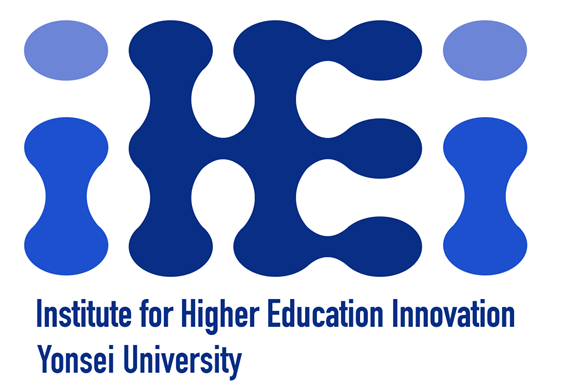 The Institute for Higher Education Innovation (IHEI) at Yonsei University in Seoul, Korea, promotes university-led social innovation and introduces various initiatives to encourage students to become social innovators. Its flagship extracurricular program “Workstation” supports students to team up to proactively identify and address social issues in innovative ways that can have a positive impact on Korea and the international community. In 2019, IHEI supported 163 teams (875 students) and opened over 150 social innovation courses for over 4,700 students.
The Institute for Higher Education Innovation (IHEI) at Yonsei University in Seoul, Korea, promotes university-led social innovation and introduces various initiatives to encourage students to become social innovators. Its flagship extracurricular program “Workstation” supports students to team up to proactively identify and address social issues in innovative ways that can have a positive impact on Korea and the international community. In 2019, IHEI supported 163 teams (875 students) and opened over 150 social innovation courses for over 4,700 students.
show mobile menu
mobile menu

